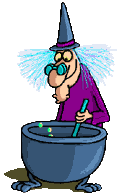ChrissyB
Well-Known Member
Hi Everyone
I know that this might seem like a strange question, but I was wondering what everyone's hygiene procedure is when making soap, especially if you are making it to sell.
Personally, I know my kitchen is clean, but I just give everything a good wipe down and make sure all my pots, moulds, spoons, bowls, everything is scrupulously clean.
However, if I were to be cooking cakes or something to donate to the school cake stall or something like that, I make a solution of bleach or domestos and water, and wipe and wash every single thing that I will be using before I even start. Of course I don't do that every night when I cook dinner, but if other people are going to pay for my cakes I ensure that everything is meticulous. Just wondering if anyone goes to the same lengths for their soapmaking, or if there is any real need to.
Thanks
Chrissy
I know that this might seem like a strange question, but I was wondering what everyone's hygiene procedure is when making soap, especially if you are making it to sell.
Personally, I know my kitchen is clean, but I just give everything a good wipe down and make sure all my pots, moulds, spoons, bowls, everything is scrupulously clean.
However, if I were to be cooking cakes or something to donate to the school cake stall or something like that, I make a solution of bleach or domestos and water, and wipe and wash every single thing that I will be using before I even start. Of course I don't do that every night when I cook dinner, but if other people are going to pay for my cakes I ensure that everything is meticulous. Just wondering if anyone goes to the same lengths for their soapmaking, or if there is any real need to.
Thanks
Chrissy















































